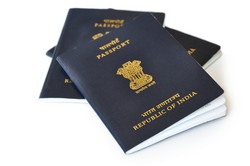Citizenship in a changing global world
Questions, theories and issues centred on citizenship are at the forefront of much political discourse. The modern nation state is increasingly fragmenting into regional identities, facing challenges in integrating new social groups, and being transformed by supranational and international entities. The project OECUMENE (Citizenship after Orientalism) explored political subjectivities outside Europe, conducting a comparative study of genealogies of citizenship at the frontiers of Europe. Researchers focused on the interaction between citizenship (the process by which political subjectivity is recognised and enacted) and orientalism (the process by which Europe is considered the birthplace of universal ideas such as democracy, secularism, rights and capitalism). Adopting a genealogical research methodology, the research team sought to locate the origins, interpretations and mutations of ideas and actions in their historical and cultural trajectories. With the question of citizenship at the heart of the legitimacy of the EU, investigating the origins of ideas about (European) citizenship by comparing Judaeo-Christian developments with Buddhism, Confucianism, Islam and Hinduism meant that European citizenship needs rewriting. OECUMENE thus took a critical analysis approach to the argument that explains the success of European capitalism in terms of differences in social structures that effectively prevented the emergence of citizens in oriental societies. As such, the team examined the ways in which individuals act as citizens in/of the world, rejecting that a rights-claiming subject was an exclusive European invention. By confronting colonial, imperialist and orientalist histories of citizenship, OECUMENE has contributed to rewriting European citizenship with genuinely comparative research.
Keywords
Citizenship, nation state, orientalism, imperialism, capitalism, genealogy, colonialism, rights



